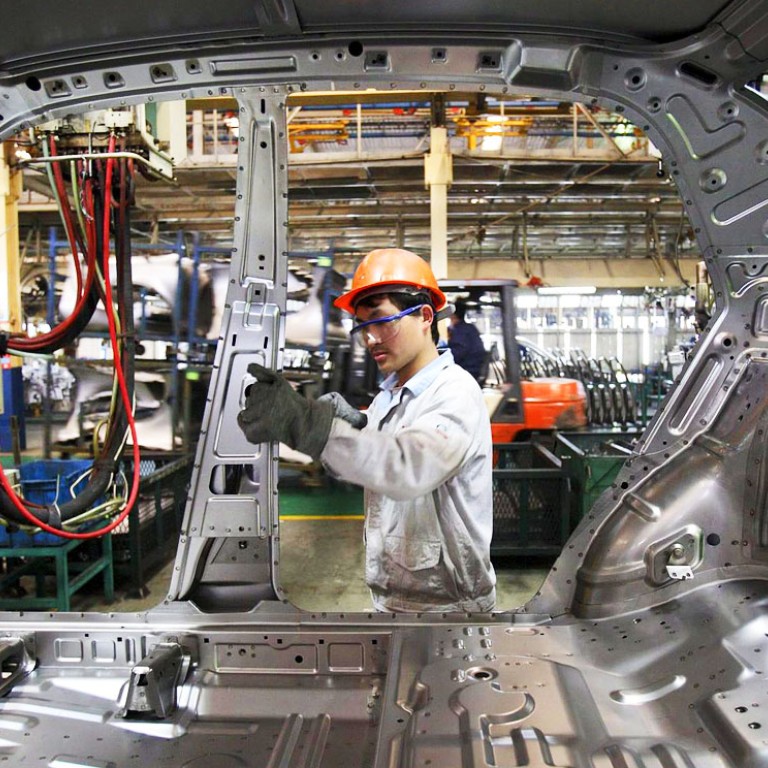
Direct investment down 17pc as China's factories lose allure
Foreign direct investment on the mainland fell 17 per cent year on year last month, as the manufacturing sector attracted much less capital from overseas.
Foreign direct investment on the mainland fell 17 per cent year on year last month, as the manufacturing sector attracted much less capital from overseas.
Ministry of Commerce spokesman Shen Danyang told a press conference in Beijing yesterday that FDI totalled US$7.81 billion in July.
"FDI into the service sector still maintained relatively rapid growth in July, [yet] the factory sector saw declines," he said.
"As China enhances its efforts to restructure the economy, it is normal to see some fluctuation of FDI volume."
He denied that the sharp decline was related to a market-manipulation crackdown that has targeted foreign companies including software giant Microsoft and carmaker Audi.
Among the 10 biggest sources of foreign investment, Japan saw the biggest decline in investment value last month, falling 45.4 per cent year on year.
Investment from the 28-member European Union fell by 17.5 per cent while that from members of the Association of Southeast Asian Nations was down 12.7 per cent.
The mainland's top 10 sources of foreign investment last month were, in order, Hong Kong, Taiwan, Singapore, South Korea, Japan, the United States, Germany, Britain, France and the Netherlands.
A total of 2,276 foreign-invested companies were set up in July, up 14 per cent year on year.
Overseas direct investment from the mainland increased by 4 per cent to US$52.55 billion in the first seven months of the year.
Apart from the sharp decline in foreign investment inflows, Shen said the mainland remained under "great pressure" to meet its annual export target, despite posting surprisingly rapid export growth of 14.5 per cent year on year last month.
"Exports are still facing a lot of uncertainty due to the unstable recovery of external demand, increasing trade friction and lack of competitiveness," Shen said.
In contrast with past years, markets yesterday were not significantly affected by the drop in FDI in July. Hong Kong's H-share index closed down 0.4 per cent. The Shanghai Composite Index ended the day up about 0.5 per cent.
With overcapacity and thin margins in China's manufacturing sector, a decline in foreign investment flows was expected, Zhou Hao, a Shanghai-based economist at ANZ Bank, said.
"Basically, people have been less and less focused on this [FDI] data," he said.
"This isn't necessarily bad news for China … going forward we should focus more on China's going-out strategy."
The news represented more balanced capital flows for China, which for years ran massive capital inflows, Zhou pointed out. The mainland could attract more investment from abroad should it further open its service sector, he said.

